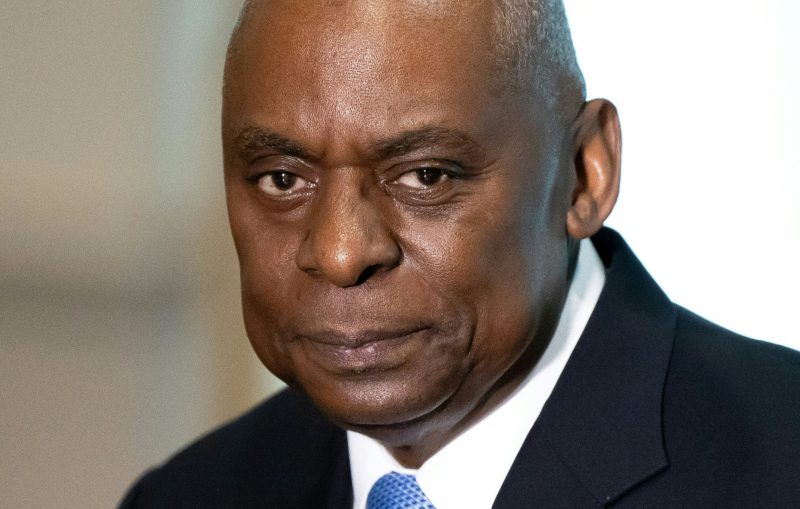Defense Secretary Lloyd Austin was released from his latest hospitalization Tuesday, officials said, as he endures a difficult recovery from prostate cancer that included surgery in December and a lengthy stay in intensive care last month.
Austin, 70, was discharged from Walter Reed National Military Medical Center in Maryland about 3:30 p.m., the Pentagon said in a statement. He resumed his duties as defense secretary about 5 p.m. and is expected to continue his recovery from home and participate remotely in meetings Wednesday.
Austin’s doctors, John Maddox and Gregory Chesnut, said in the statement that he developed a bladder problem “related to his December 2023 prostate cancer surgery” and that his condition when he returned to the hospital again Sunday “indicated a need for close monitoring by the critical care team and supportive care.”
Austin’s bladder issue was unrelated to the cancer itself, his doctors said, and “will have no effect on his excellent cancer prognosis.” They anticipate a full recovery.
Austin was admitted to the hospital Sunday about 2:20 p.m. and turned over his duties a couple of hours later to Deputy Defense Secretary Kathleen Hicks. A day later, he was placed under general anesthesia as he underwent a related procedure, Pentagon officials said.
Austin’s health and his handling of it have come under scrutiny after he withheld his cancer diagnosis from President Biden and other senior staff for weeks, even after he underwent surgery Dec. 22 to treat it. An ambulance took him to Walter Reed again Jan. 1, as he experienced painful complications that included an infection in his urinary tract and bladder, but he withheld that information from the White House until Jan. 4.
Austin remained hospitalized for two weeks and was released Jan. 15.
The defense secretary later apologized for his secrecy, saying that the cancer diagnosis had been a “gut punch” and that he should have handled it better given his public role.
The Defense Department inspector general’s office has opened an independent review of the matter, and Austin’s staff recently concluded its own 30-day review for how his hospitalization was handled. Its findings have not yet been made public.
It’s unclear when Austin may return to the Pentagon. He is expected to meet virtually Wednesday morning with defense ministers from dozens of countries supporting Ukraine’s effort to expel invading Russian forces. On Feb. 29, he is scheduled to testify before the House Armed Services Committee, whose members have been critical of how he handled his health crisis.
David Yee, director of urology and genitourinary services at Sutter Roseville Medical Center in California, said it can be harder for people to recover from surgeries or hospitalizations as they age.
“Over time, people get deconditioned and your ability to bounce immediately back and resume your normal activity greatly diminishes,” Yee said.
Yee said he would counsel a patient in a situation similar to Austin’s to prioritize their health, telling them the “importance not only of treating the immediate medical crisis, but also taking time for recovery prior to resuming full duty.”

